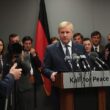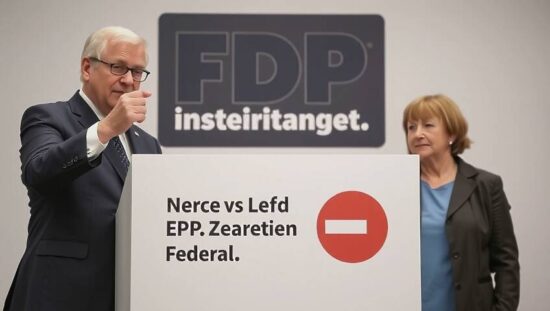Recent polls by the Institute for Demoskopie Allensbach have shown a surge in support for the Free Democratic Party (FDP) and the Left Party, with both parties gaining ground in the run-up to the German federal election. The Left Party, which had previously garnered only three percent of the vote, has doubled its support to six percent, while the FDP has regained its footing, now standing at five percent.
Meanwhile, the CDU/CSU has lost ground, dropping from 34 to 32 percent, while the Social Democratic Party (SPD) has also seen a decline, now at 15 percent. The Greens have lost a half a percentage point, now at 13 percent and the Alternative for Germany (AfD) remains steady at 20 percent.
According to the poll, 38 percent of those planning to vote on February 23 are still undecided about their choice. However, the level of undecided voters varies among supporters of different parties, with AfD sympathizers being the most decisive, at 82 percent. The rates of undecided voters among supporters of other parties range from 43 percent (FDP) to 60 percent (CDU/CSU).
In response to the question of which party is most effectively addressing the issues that concern citizens, the CDU/CSU and AfD are nearly tied, at 33 percent each. However, a significant east-west divide emerges, with the AfD leading in the eastern regions, at 41 percent and the CDU/CSU trailing, at 24 percent. The SPD and the Bündnis Sahra Wagenknecht (BSW) follow, with 12 and 10 percent, respectively, of respondents believing the parties are addressing the issues that matter.
The BSW also shows a significant east-west divide, with 20 percent of respondents in the east believing the party is addressing the concerns of citizens, compared to eight percent in the west.
The poll was conducted between January 31 and February 12, with 1,021 people being personally interviewed.





